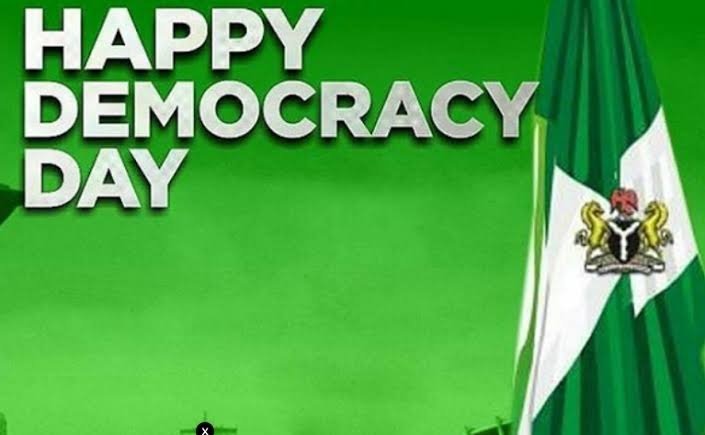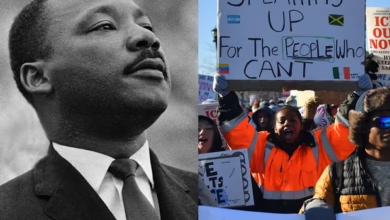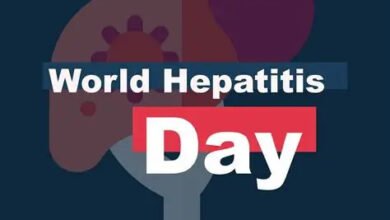Democracy Day in Nigeria: A Call to Conscience for the Rights and Welfare of the Nation’s Children

Each year on June 12, Nigerians observe Democracy Day, a national public holiday that commemorates the country’s turbulent journey from military dictatorship to civilian governance. But beyond the ceremonies, presidential speeches, and symbolic remembrances, there is an often-overlooked group whose lives are deeply shaped by the state of Nigeria’s democracy: children.
Democracy and the Unfinished Promise to Nigerian Children
Democracy, by its very definition, is the rule of the people. While children may not cast votes or hold public office, their voices, needs, and rights are deeply tied to the outcomes of governance. On Democracy Day, as the nation reflects on its democratic journey, it must also confront a stark reality: millions of Nigerian children continue to live without the basic freedoms and protections that democracy promises.
According to UNICEF (2024), nearly 11 million Nigerian children are experiencing severe food poverty, meaning they consume no more than two out of eight essential food groups. Even more alarming is that over 18 million children remain out of school, with girls, displaced children, and those living in insecure regions facing the greatest barriers. These figures are not just statistics — they are a searing indictment of a democratic system that has not yet delivered justice, opportunity, and dignity to its youngest citizens.
June 12: A Day of Symbolism and Struggle
June 12 commemorates the 1993 presidential election, considered Nigeria’s most credible election to date. Chief Moshood Kashimawo Olawale (M.K.O.) Abiola was the presumed winner, yet the military annulled the results, triggering civil unrest and a long struggle for democracy.
Democracy Day was initially observed on May 29, the day civilian rule returned in 1999 with the inauguration of President Olusegun Obasanjo. But in 2018, the holiday was moved to June 12 by President Muhammadu Buhari to honor Abiola and what that election represented: the will of the people.
Yet, decades after the return to civilian rule, many Nigerians especially children, are still waiting to feel the benefits of democracy. What does June 12 mean to a child who has never entered a classroom, eaten three nutritious meals in a day, or felt safe walking home?
The Nigerian Child and the Democratic Disconnect
Despite the promise of the Universal Basic Education Act, which mandates free education for all children, millions remain excluded due to insecurity, poverty, displacement, and lack of infrastructure.
Digital exclusion compounds the problem. Only 36% of Nigerians have internet access, and 78% of youth lack digital literacy, a major barrier in a tech-driven world. Children in rural areas, displaced persons’ camps, and conflict zones are especially left behind.
Economic instability further worsens child vulnerability. With inflation pushing food prices beyond the reach of many households, 33 million Nigerians are projected to face acute food insecurity in 2025, and children bear the brunt of this nutritional crisis.
What Democracy Should Mean for Nigerian Children
If democracy is truly about freedom, justice, and equality, then its value must be measured by how it uplifts the most vulnerable, not just how it empowers the elite. Democracy Day, therefore, must go beyond commemorating elections and transitions, it must become a national moment of accountability and vision for the future of Nigerian children.
1. The Right to Education
Every child must be in school, not just on paper but in reality. The government must invest in safe schools, qualified teachers, and inclusive learning systems that accommodate children who are differently abled, and displaced children.
2. The Right to Safety
In a democracy, every child should feel safe, from violence, trafficking, insurgency, and abuse. Community-based child protection systems must be prioritized in both conflict-affected and urban communities.
3. The Right to Nutrition and Health
Democracy must nourish the next generation. Severe child food poverty is a silent emergency. Policy responses must include school feeding programs, maternal health services, and affordable food subsidies for vulnerable families.
4. The Right to Digital Inclusion
Digital literacy and access to internet-enabled tools are no longer optional. Nigeria’s democratic agenda must include investments in rural internet infrastructure, device access, and youth-oriented digital skills training.
5. The Right to Be Heard
Children’s voices matter. Democracy must include avenues for child participation in community decisions, school governance, and policy advocacy. Platforms such as children’s parliaments and youth consultative forums should be revitalized and mainstreamed.
Children Are Watching: What Democracy Teaches the Next Generation
Children learn about democracy not just in civics textbooks, but by watching adults; parents, teachers, politicians, police officers, and community leaders. They observe:
-
Whether elections are free and fair.
-
Whether peaceful protest is allowed or suppressed.
-
Whether leaders are accountable or corrupt.
-
Whether laws protect or oppress.
On June 12, they watch the nation commemorate democracy and they are learning what kind of democracy we are passing down to them.
Democracy Day as a Call to Action
This year marks 26 years of Nigeria’s return to democratic rule. While this is a milestone worth noting, it is also a sobering reminder of how much more needs to be done, especially for children.
As Nigerians protest in the streets, calling out worsening economic hardship, inflation, unemployment, and insecurity, their demands should include urgent reforms in child welfare, education, digital inclusion, and food security. If democracy cannot feed, educate, or protect its children, then its legitimacy is fundamentally in question.
Conclusion
Democracy Day is not just a celebration; it is a call to conscience. A call to prioritize the needs of those who cannot yet vote, but whose future depends on today’s decisions. Children are the heartbeat of any nation. On this June 12, let Nigeria reflect and act to build a democracy where every child matters, every right is upheld, and no voice is too small to be heard.





